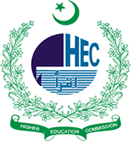GROUNDWATER QUALITY AND FATE OF PUBLIC HEALTH IN NEW KARACHI TOWN, KARACHI, PAKISTAN
DOI:
https://doi.org/10.51846/the-sky.v1i0.219Keywords:
Groundwater quality, physico-chemicalparameters, health impacts, New Karachi TownAbstract
The aim of present study was to evaluate the groundwater quality and its potential impacts by drinking on the health of New Karachi Town residents. For this purpose, a total of 25 groundwater samples were randomly collected through boring wells at a depth range of 961 meters from the study area. Data revealed that all the chemical parameters exceeded their guideline values of WHO for drinking purpose in most of the wells. TDS content of groundwater is very high (mean: 4781.6 mg/L) which exceeded the WHO limit (500 mg/L) for drinking purpose. Highly elevated concentration of Na (mean: 1397mg/L), K (mean: 39.72 mg/L), Ca (mean: 308.7 mg/L), Mg (mean: 1408.65 mg/L), Cl (mean: 2502.345 mg/L), HCO3 (mean: 441 mg/L) and SO4 (mean: 332.4376 mg/L) is reported in more than 85% wells which is against the corresponding WHO guideline for drinking purpose. Very high concentration of these major ions (Mg, K, Ca, Na, Cl, SO4 and HCO3) is indicating the sewage mixing with groundwater in study area. Groundwater in New Karachi town is not suitable for drinking purpose and may cause serious health impacts of acute and chronic nature.
Downloads
Published
How to Cite
Issue
Section
License
Copyright (c) 2017 Adnan Khan, Asal Eghbalbakhtiari, Suhail Anjum

This work is licensed under a Creative Commons Attribution-ShareAlike 4.0 International License.
Authors retain copyright of their work and grant THE SKY-International Journal of Physical Education and Sports Sciences the right to publish it under a Creative Commons Attribution-ShareAlike 4.0 International License (CC BY-SA 4.0). This license permits sharing, adaptation, and redistribution of the work, provided proper attribution is given to the authors.
Authors may distribute the journal’s published version (e.g., in repositories, books, or other platforms) non-exclusively, with acknowledgment of its original publication here.
Authors are encouraged to share their work publicly (e.g., on personal websites or institutional repositories) to foster scholarly exchange.







